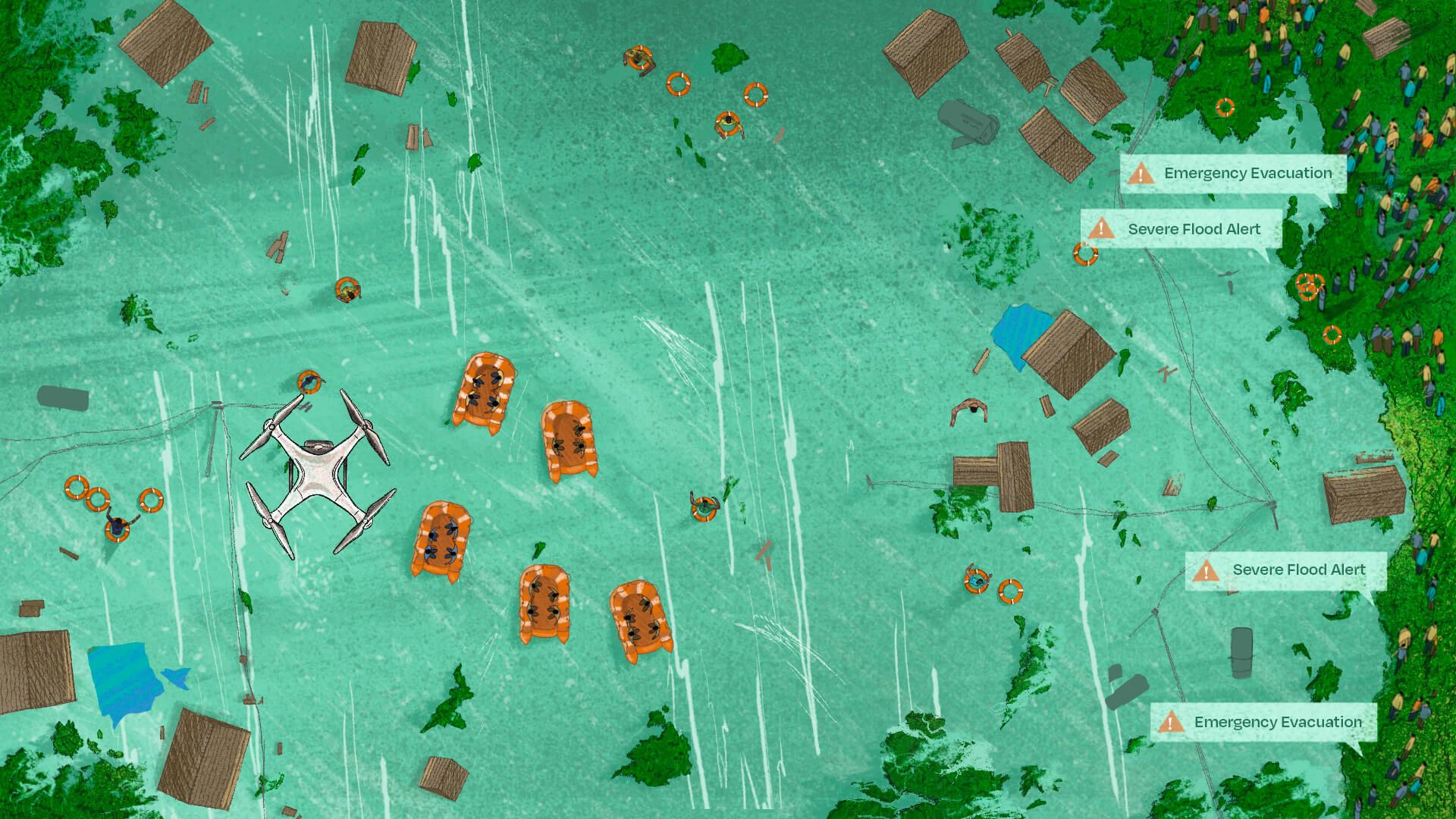
Current Landscape
We mapped the maturity of the AI innovation ecosystem in the region, dominant AI use cases across three sectors, and the emergent opportunities, challenges and risks.
Read the ReportAssessing the Ecosystem
- Most countries in the region view emerging digital technologies, particularly AI, as central to swift and effective climate action. Rapid digitalisation, a vibrant start-up ecosystem, sustained growth in the tech sector, and the availability of local talent create opportunities for Asian countries to develop AI-based interventions for climate action.
- There is also considerable variation across countries. The East Asian region scores considerably higher than South Asia in terms of government AI readiness, but East Asia also has the highest range of scores on a recent government readiness index. While countries like Singapore and China have a fairly mature ecosystem for AI innovation, policy attention on AI is limited in Bangladesh.
- However, there are also considerable gaps between policy and practice. Some key reasons for this gap are siloed policy agendas, weak institutional capacities, limited investments in R&D, a lack of climate financing, and the absence of multi-disciplinary capacities across data science, machine learning and climate action.
- The lack of climate data and the poor usability of existing data infrastructures is a common challenge across countries. The quality and coverage of satellite data are insufficient to develop localised ML solutions. Extensive data collection, including the installation of data collection infrastructure, is required to corroborate satellite data — what is commonly referred to as ground truthing. This is an expensive and laborious activity, particularly in already low-resource contexts. Despite investments in open data infrastructures across the region, adoption and use are limited. The absence of equitable data-sharing mechanisms is a further impediment to developing appropriate AI-based interventions.
- Private-sector investment in climate tech is growing across the region, particularly in mobility and transportation. The costs and resources of building AI applications incentivise companies to focus on commercially lucrative applications. The lack of reliable evidence and metrics to evaluate the impact of climate tech solutions could be a deterrent to future investment. Lack of community consultation and the absence of a sustainable revenue model also impede the development of climate adaptation applications for vulnerable populations.

Opportunities, Challenges
and Risks
- The use of machine learning for climate action is nascent in most countries in Asia. Many initiatives are at the research or pilot stage. Evidence on impact and outcomes is limited; where available, it is predominantly media reports or articles by companies themselves.
- Within agriculture and food systems, a bulk of applications involve weather forecasting and crop advisories for farmers. Machine learning (ML) is also enabling research on climate-resilient food and seed varieties. However, large variances across agro-climatic zones and the resources required to capture accurate data make it difficult to develop accurate, context-specific, advisories. Unequal digital access and a lack of financing also limit the adoption of technology. Displacement of local knowledge systems and threats to food sovereignty are further concerns.
- In the power and energy sector, ML is being used to forecast demand and supply of power, improve planning, and identify and monitor renewable energy sources. High costs, a lack of interdisciplinary technical expertise, and cyber-security and other risks have contributed to the slow and incremental adoption of ML in the power sector. Consumer-facing behavioral nudges are being tried in countries like Singapore but may not work in other countries where concerns around data privacy are given more attention. ML is also being used to advance research on new sustainable materials.
- The application of ML for disaster preparedness and response is growing, with several applications for weather prediction and crisis response. A few examples of disease surveillance tools were observed in advanced economies like Japan and Singapore, but they have yet to provide accurate results. Unequal digital access and fluency pose a persistent challenge to the inclusive use of these disaster response tools. Considerable research on the use of Large Language Models (LLM) to bridge the digital divide is underway, but the use of LLMs could also exacerbate the problem of climate misinformation in the region.
Structural Risks
- In addition to the opportunities and challenges associated with specific AI applications, we must also consider the broader system-level impacts and structural transformations that may result from the use of AI for climate action.
- Building and maintaining AI systems has considerable environmental costs. Water and electricity consumption may be even higher in Asia due to the warmer climate. Improving the accuracy and size of models further increases their environmental footprint. Most of the global e-waste is already dumped in the global south causing health-related problems among already marginalised populations.
- The use of AI can also accentuate global climate inequalities. Well-resourced geographies are better positioned to leverage technological advancement while those that are most vulnerable to climate change risk being further marginalised. Many existing applications prioritise commercial gain over meaningful climate action, and risk contributing to greenwashing by private companies.
- AI systems could displace traditional knowledge systems while contributing to further entrenchment of power with leading technology companies. Top-down AI-based interventions risk displacing or delegitimizing traditional or indigenous knowledge systems. A handful of technology companies dominate critical social sectors; policy approaches that rely on AI applications for climate action may exacerbate the consolidation of their power.